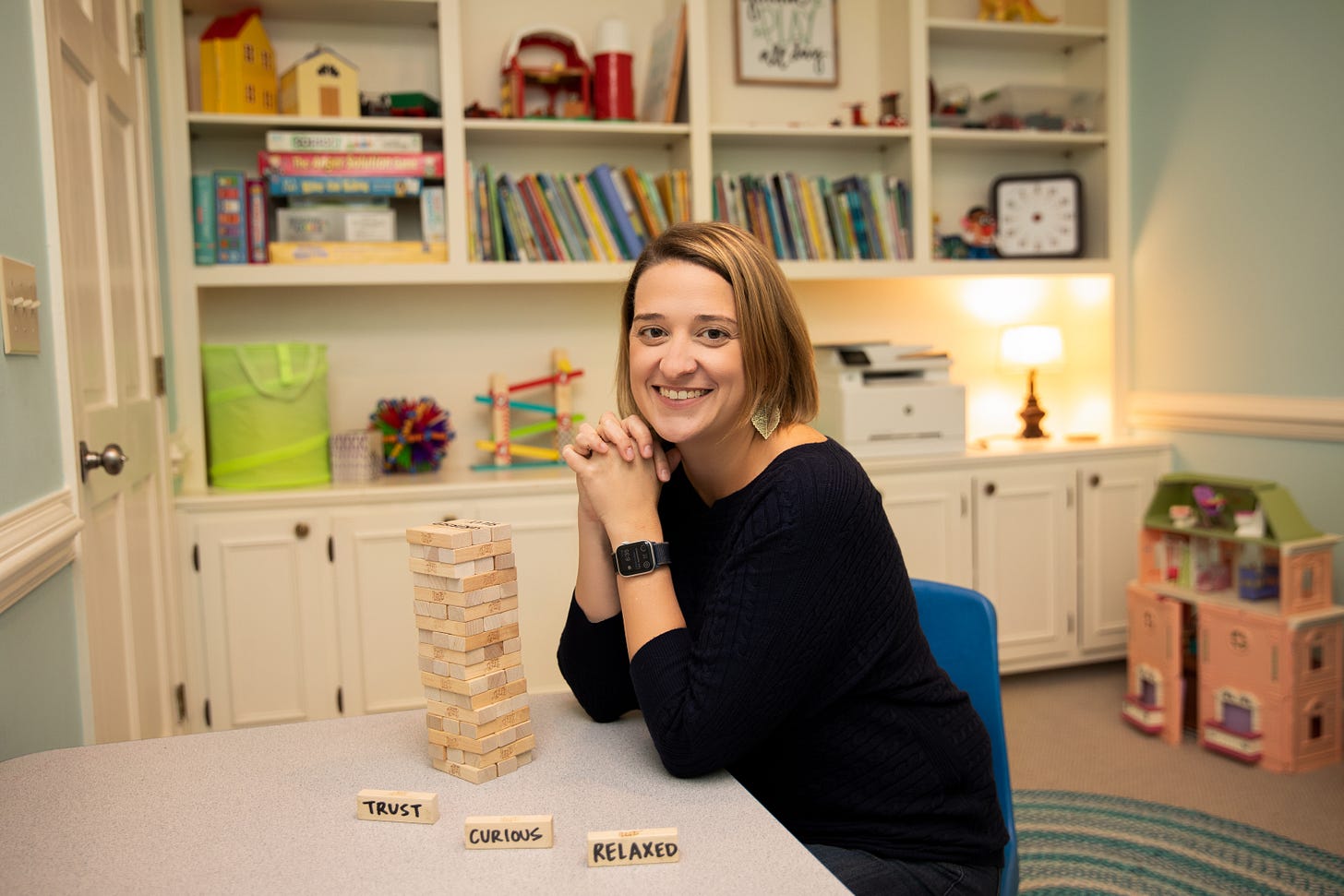
If you have ever had a conversation with a fellow parent raising a neurodivergent child, you have either said this phrase or you have heard this phrase.
It usually goes something like this, “We are so grateful for our son’s teacher this year. She really gets it.” Or, “We are getting together with extended family over the holidays and it’s always tough. They don’t get it.”
Parents raising children diagnosed with autism, ADHD, or twice-exceptionality, which often comes with anxiety, sensory sensitivities, and executive functioning weaknesses, immediately know what this phrase means.
It truly is the fastest way to sum things up between parents without even needing to explain why your child only wears purple shorts or why you always leave parties early.
So what exactly does it mean to say someone “gets it?”
It means a teacher who sees ripped paper and assumes frustration and not intentional destruction of property.
It means a school administrator who hears profanity but sees an overwhelmed and frustrated child, not a rude one.
It means a soccer coach who sees a meltdown about socks and shin guards and patiently understands the need for more time to process the feeling of sweaty, itchy soccer gear.
It means a piano teacher who understands when you show up for lessons but your child cannot get out of the car because the routine has been different that day.
It means a religious leader who allows your child to sit with you to sing instead of insisting they stand up in front with the group.
It means a grandparent who sees you not picking battles about food so that your child can be nourished today.
It means a grown-up who listens to your child talk about the details of space travel and notices how it lights up their face.
It means a friend of yours who finds a quiet spot at the party and hangs back with you while your child plays.
It means a teacher who celebrates and shares with excitement that your child asked for help after months of not being able to speak up in class.
It means a therapist who knows aggression is a stress response leading to emotional dysregulation and the goal is to help a child feel connected, safe, and then learn skills.
It means a teacher who sees your child's strengths AND your child's needs for support and believes that, yes, these vastly different abilities can indeed exist within the same child.
It means someone sees your child beyond the behavior that may cause others to feel uncomfortable . They get it. And, they are now a part of your village.
Pass this on to anyone who needs to read this today.
Let’s Stay Connected!
~Dr. Emily
Related Blogs & Workshop Replays…
What Parents Raising Neurodivergent Kids Worry About
As many of you know, I have been on both sides of the diagnostic feedback session. I’ve been the child psychologist reviewing evaluation results with parents and I’ve been the parent on the receiving…
Why Parents of Neurodivergent Kids are Really Good at Gratitude
If you are raising an autistic child or one with ADHD, anxiety, or sensory processing differences, you may have had some moments when you’ve looked at others and thought, “I wish it was easier for my…
[WORKSHOP REPLAY] Executive Functioning Strategies for Neurodivergent Kids & Teens
As parents raising neurodivergent kids and teens who often struggle to feel time, manage time, and transition between activities independently, supporting our kids’ executive functioning is paramount. Figuring out what systems work to support our kids’ attention and motivation will help them understand what works and how to advocate for themselves as they mature.
About Dr. Emily…
I’m Dr. Emily, child psychologist and former school psychologist, and I’m on a mission to help parents and teachers be the best adults we can be for the neurodivergent kids and teens in our lives. This isn’t about changing the kids, it’s about changing us. Learn more with my resources for parents, teachers, and schools at www.learnwithdremily.com.
**All content provided is protected under applicable copyright, patent, trademark, and other proprietary rights. All content is provided for informational and education purposes only. No content is intended to be a substitute for professional medical or psychological diagnosis, advice or treatment. Information provided does not create an agreement for service between Dr. Emily W. King and the recipient. Consult your physician regarding the applicability of any opinions or recommendations with respect to you or your child's symptoms or medical condition. Children or adults who show signs of dangerous behavior toward themselves and/or others, should be placed immediately under the care of a qualified professional.**





![[WORKSHOP REPLAY] Supporting Anxiety in Neurodivergent Learners](https://substackcdn.com/image/fetch/$s_!Ys-1!,w_1300,h_650,c_fill,f_auto,q_auto:good,fl_progressive:steep,g_auto/https%3A%2F%2Fsubstack-video.s3.amazonaws.com%2Fvideo_upload%2Fpost%2F158614453%2Ff3464772-43a9-4bf7-b193-73be88323d56%2Ftranscoded-1741381133.png)

![[WORKSHOP REPLAY] Executive Functioning Strategies for Neurodivergent Kids & Teens](https://substackcdn.com/image/fetch/$s_!dZoZ!,w_1300,h_650,c_fill,f_auto,q_auto:good,fl_progressive:steep,g_auto/https%3A%2F%2Fsubstack-post-media.s3.amazonaws.com%2Fpublic%2Fimages%2Fea24bfd2-fea0-4a8f-a26a-8aaf98ec8fad_1080x720.jpeg)
